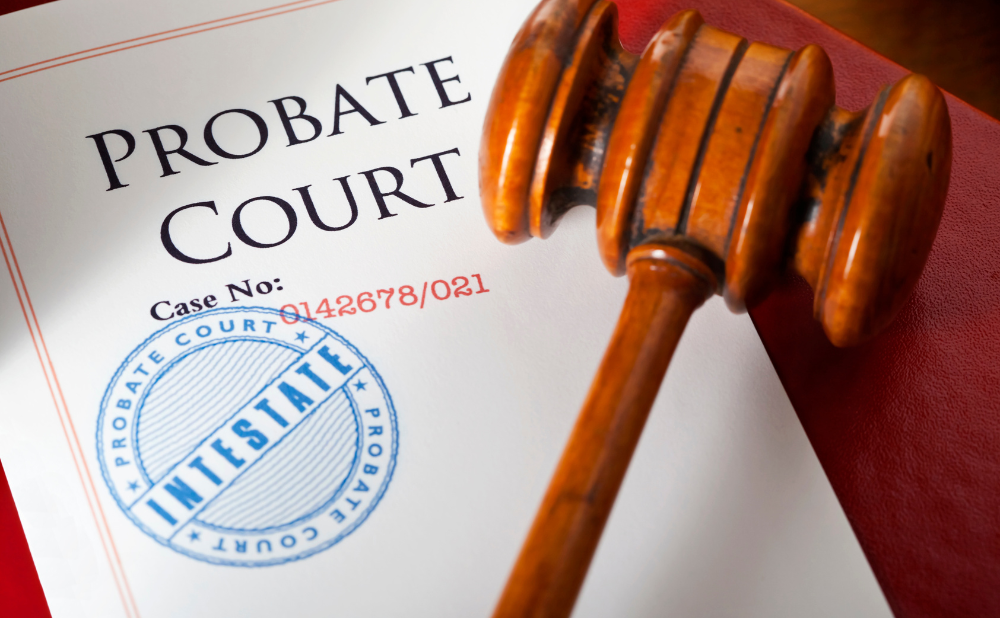Losing a loved one is hard enough—managing their estate doesn’t need to add stress. A probate attorney in Westmoreland County can help guide families through Pennsylvania’s complex probate law. Whether you’re starting probate estate administration or need help finalizing an estate plan, experienced legal support is essential.
Understanding how probate works is the first step. It’s the official process of managing a deceased person’s assets, debts, and final wishes. A knowledgeable probate attorney in Westmoreland County can help you avoid mistakes and move through the steps more smoothly.
In Westmoreland County, probate rules are specific to local courts. Missing deadlines or documentation can delay the estate administration process. That’s why many families turn to a trusted law firm with deep experience in PA probate cases.
If no will exists, state law determines how property is distributed. This is called intestate succession. In either case, proper estate planning before death can help simplify the entire probate estate process.
Key Parts of Probate Estate Administration
Probate estate administration involves several important steps, and working with an experienced lawyer can make the process much smoother for families during a difficult time. Each task must be handled carefully to ensure legal compliance and protect the wishes of the deceased.
- Filing the Will – The process begins by submitting the will to the Register of Wills in Westmoreland County. This legally opens the estate and starts the probate process. A probate attorney in Westmoreland County ensures the filing is done correctly and on time.
- Appointing an Executor or Administrator – If the will names an executor, the court will officially appoint them. If there is no will, the court designates an estate administrator. This person is responsible for managing all probate estate affairs, with legal oversight and support from a probate lawyer.
- Inventorying the Estate – A full inventory of the deceased’s assets, including bank accounts, personal property, and real estate, must be compiled. Proper documentation helps avoid delays and supports accurate distribution of assets. This step is crucial for estate planning and estate administration alike.
- Paying Debts and Taxes – Outstanding debts and taxes must be settled before any inheritance is distributed. This includes medical bills, credit card balances, final utility bills, and applicable estate or inheritance taxes under PA probate law. An attorney helps ensure these obligations are handled properly and within legal timelines.
- Distributing Assets – Once debts are paid, the remaining assets are distributed to heirs based on the instructions in the will—or by Pennsylvania’s intestate succession laws if no valid will exists. This phase often requires attention to real estate transfers, title work, and clear communication with beneficiaries.
Because each estate is different, legal challenges may arise. A probate lawyer can step in to clarify unclear terms in the will, settle disagreements among heirs, or ensure proper execution of real estate documents. These services are especially important in cases involving blended families, disputed inheritances, or complex asset portfolios.
Law firms such as Bumbaugh | George | Prather | DeDiana offer comprehensive legal support across multiple practice areas. Their attorneys routinely assist with probate estate administration, estate planning, family law concerns, and real estate matters throughout Westmoreland County and Southwestern Pennsylvania.
Why You Need a Probate Lawyer
A probate lawyer plays a critical role in guiding families through the legal complexities that follow a loved one’s passing. Estate administration often involves multiple legal procedures, court filings, and deadlines that can easily become overwhelming—especially for someone unfamiliar with Pennsylvania probate law. That’s why working with an experienced probate attorney in Westmoreland County is so important.
A skilled attorney does more than just fill out paperwork. They become a trusted advisor, helping executors and family members make informed decisions, reduce risk, and avoid costly delays. Whether you’re managing a straightforward estate or navigating a complicated probate estate with multiple heirs, a probate lawyer ensures that the legal process stays on track.
Here are just a few of the responsibilities a probate attorney can assist with:
- Preparing and filing required documents with the probate court, including petitions, notices, and inventory reports.
- Representing the estate in court if disputes arise over the validity of the will or distribution of assets.
- Advising on real estate issues, such as transferring property titles, resolving liens, or managing inherited property sales.
- Providing tax guidance, including how to handle estate taxes, inheritance taxes, and final income tax returns.
- Helping executors fulfill their legal obligations, from paying creditors to distributing assets fairly and in compliance with state law.
Legal issues are often unpredictable. A misplaced document, a forgotten debt, or disagreement among beneficiaries can quickly escalate into a major problem. A probate attorney steps in to mediate, resolve conflicts, and make sure nothing is overlooked—especially when it comes to complicated real estate matters or estates with significant financial assets.
Many families also find that hiring a probate lawyer offers peace of mind. Rather than second-guessing legal decisions, you can focus on healing and honoring your loved one’s legacy. An experienced lawyer can help ensure that probate estate administration proceeds in accordance with PA probate requirements while minimizing potential delays or disputes.
Having an attorney by your side ensures your loved one’s wishes are respected and the estate is managed legally and efficiently. In many cases, a probate lawyer also protects the executor from personal liability—an often-overlooked risk in estate administration.
Contesting a Will in PA Probate
If you believe a will is invalid or doesn’t reflect the true intentions of the person who passed, it’s important to act quickly. A PA probate attorney can help you understand your legal options, gather evidence, and file any necessary court documents before key deadlines. Contesting a will is a serious legal process that requires a strong understanding of Pennsylvania probate law and the rules governing estate planning.
There are several legal grounds on which a will may be contested:
- Improper Execution: The will may not meet the legal requirements set by Pennsylvania law. For example, it may be missing signatures or witnesses, or it may not have been signed voluntarily in the presence of appropriate parties.
- Lack of Capacity: If the person who created the will (the testator) did not have the mental capacity to understand what they were doing at the time, the will may be declared invalid. This often comes into play when dementia or cognitive decline is involved.
- Undue Influence: If someone close to the deceased exerted pressure or manipulated them into changing their estate plan, that could be grounds to challenge the document. This is common in situations where a new or unexpected beneficiary appears in the final version of the will.
- Fraud: If the will was created based on false information or deceit, or if the signature was forged, the document may not be legally enforceable.
Legal representation is crucial when contesting a will. These cases often involve emotionally charged disputes among family members and can become complicated very quickly. A probate lawyer not only ensures that your claim is filed correctly, but also helps you meet court-imposed deadlines, gather required documentation, and represent your position effectively in hearings.
A probate attorney in Westmoreland County can also assist if you’re the executor or a beneficiary defending against a will contest. They’ll work to protect the estate from unnecessary delays, ensure compliance with probate law, and help resolve the matter as efficiently and fairly as possible.
Because time is limited in probate matters, it’s essential to consult with a PA probate attorney as soon as concerns arise. Whether you’re raising a challenge or responding to one, professional legal support can make a major difference in the outcome of your case.
What Happens Without a Will
When someone passes away without a valid will, their estate does not escape probate—in fact, it must still go through the full probate process. This situation is legally referred to as intestate succession, and it means the court will rely on Pennsylvania state law to determine who inherits the deceased’s assets.
In Pennsylvania, intestate succession prioritizes close relatives such as a surviving spouse, children, or parents. If none of these individuals are alive, the estate may pass to siblings, nieces, nephews, or even more distant relatives. The law provides a specific order of inheritance, and no personal preferences or verbal wishes can override that structure without a written estate plan.
Since there is no will to name an executor, the court will appoint an estate administrator to oversee probate estate administration. This person carries out many of the same responsibilities an executor would, including:
- Locating and valuing all estate assets such as real estate, bank accounts, and personal property.
- Notifying heirs and creditors.
- Paying outstanding debts and taxes owed by the estate.
- Distributing remaining assets according to Pennsylvania’s intestate laws.
Serving as an administrator is a major legal responsibility. Mistakes in filing deadlines, tax handling, or property distribution can result in significant delays or even personal liability. That’s why hiring an experienced PA probate attorney is essential—especially when dealing with larger estates or potential family disputes.
A probate lawyer ensures the administrator complies with all legal requirements, maintains accurate records, and avoids missteps that could impact heirs. They can also help interpret intestate succession laws and advise on specific issues such as jointly owned property, retirement accounts, or real estate that’s still in the decedent’s name.
In Westmoreland County, the probate process must follow local court procedures, and working with a lawyer who understands the region’s practices can help things move more smoothly. An experienced probate attorney in Westmoreland County is well-versed in both intestate and testate probate proceedings and can help families avoid unnecessary stress.
Executor vs. Administrator
Here’s a side-by-side comparison of the roles and responsibilities of an executor (when a will exists) and an administrator (when there is no will), to help clarify how each functions in Pennsylvania probate estate administration.
| Role | Executor | Administrator |
|---|---|---|
| How Appointed | Named in a valid will by the deceased. | Appointed by the probate court when there is no valid will (intestate). |
| Legal Authority | Granted authority through the will and Letters Testamentary. | Granted authority through Letters of Administration issued by the court. |
| Main Responsibilities | Carries out instructions outlined in the will. | Distributes estate according to Pennsylvania intestate succession laws. |
| Asset Inventory | Identifies, gathers, and values all assets in the estate. | Same duties as executor—must compile a full inventory of the estate. |
| Paying Debts & Taxes | Pays off debts, funeral expenses, and taxes from estate funds. | Performs same function, following court guidance and PA probate law. |
| Distributing Assets | Follows the will’s instructions to distribute assets to named beneficiaries. | Distributes assets based on state law and court instructions. |
| Legal Oversight | Accountable to the court and beneficiaries; must file reports. | Also accountable to the court; must follow stricter legal supervision. |
| Challenges/Disputes | May defend the will if it is contested or challenged. | May handle disputes among heirs or creditors without the guidance of a will. |
| Legal Support Recommended | Often uses a probate attorney to ensure smooth administration. | Strongly recommended to work with a probate lawyer due to complexity. |
Hiring the Right PA Probate Attorney
Choosing the right probate attorney is a crucial step in ensuring that the estate administration process is handled smoothly and legally. The probate process involves strict timelines, detailed documentation, and a solid understanding of Pennsylvania probate law—so working with a qualified and experienced lawyer can make all the difference.
When selecting a PA probate attorney, it’s important to ask key questions during your initial consultation:
- What is your experience with probate law and estate administration? Look for someone who has handled cases similar to yours, especially if there are complicating factors like contested wills, out-of-state assets, or blended families.
- How do you structure your fees? Attorneys may charge hourly rates, flat fees, or offer packages for common estate services. Make sure you understand how costs will be calculated and whether a retainer is required.
- Are you available for in-person or virtual consultations? Flexibility matters—especially if family members or executors live out of state or need remote support.
- Do you have courtroom experience? If there’s any chance of disputes, working with a probate lawyer comfortable with litigation is an added advantage.
It’s also helpful to consider whether the attorney or firm provides support in overlapping practice areas like estate planning, real estate law, or family law. These areas frequently intersect with probate matters—especially when transferring inherited property, managing disputes between heirs, or resolving legal issues involving guardianships or trusts.
For example, the attorneys at Bumbaugh | George | Prather | DeDiana offer comprehensive legal support across these practice areas. Their experience in estate planning, probate estate administration, and family law provides clients with well-rounded counsel and a more efficient path through the probate process. Based in Greensburg, their team is familiar with local probate court procedures and serves families throughout Westmoreland County and surrounding regions.
Reputation and responsiveness also matter. Read client reviews, look for attorney ratings, and consider scheduling consultations with more than one firm to ensure the best fit. A strong probate lawyer should make you feel confident, informed, and supported during what can be a difficult time.
Ultimately, the right legal partner helps protect your loved one’s legacy, ensures the estate is handled properly, and reduces the likelihood of costly mistakes or delays.

Conclusion
Probate can feel overwhelming, but the right attorney makes all the difference. Whether you’re preparing an estate plan or need help with estate administration in Westmoreland County, legal guidance is key. A knowledgeable probate lawyer ensures compliance with PA probate law while protecting your loved one’s legacy.
To explore your options, contact a reputable local law firm like Bumbaugh | George | Prather | DeDiana or another experienced attorney in Westmoreland County.
FAQs About Working with Probate Lawyers in Westmoreland County
What does a probate attorney do?
A probate attorney handles the legal side of settling an estate after death. This includes guiding executors, filing documents, and helping avoid family disputes or delays.
Can you avoid probate in Pennsylvania?
Yes, in some cases. Assets held in trusts, with named beneficiaries, or in joint ownership may bypass probate. Good estate planning can reduce or eliminate the need for probate.
How much does a probate lawyer cost?
Fees vary. Some attorneys charge hourly rates; others may offer flat fees or flexible payment plans. Always ask for a cost estimate upfront.
Can I settle an estate without a lawyer?
It may be possible for small estates, but probate law is complex. A mistake could delay distribution or result in legal liability. An experienced lawyer often saves time and stress.
What documents should I bring to a consultation?
Bring a copy of the will, death certificate, list of assets and debts, and any legal documents related to the estate. This helps the attorney give more specific guidance.







